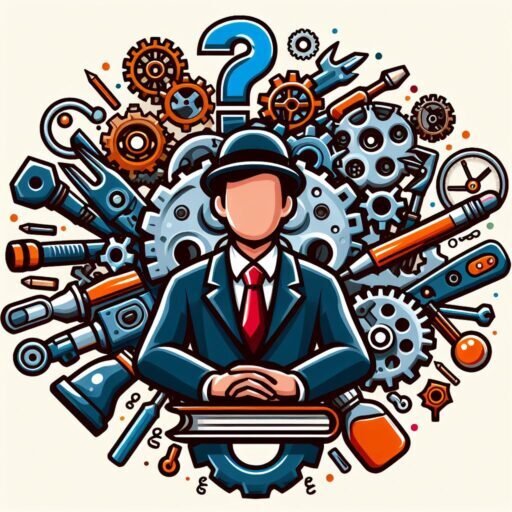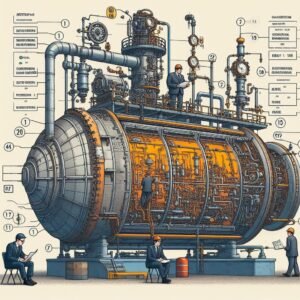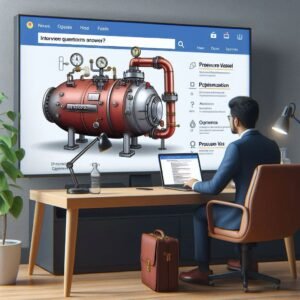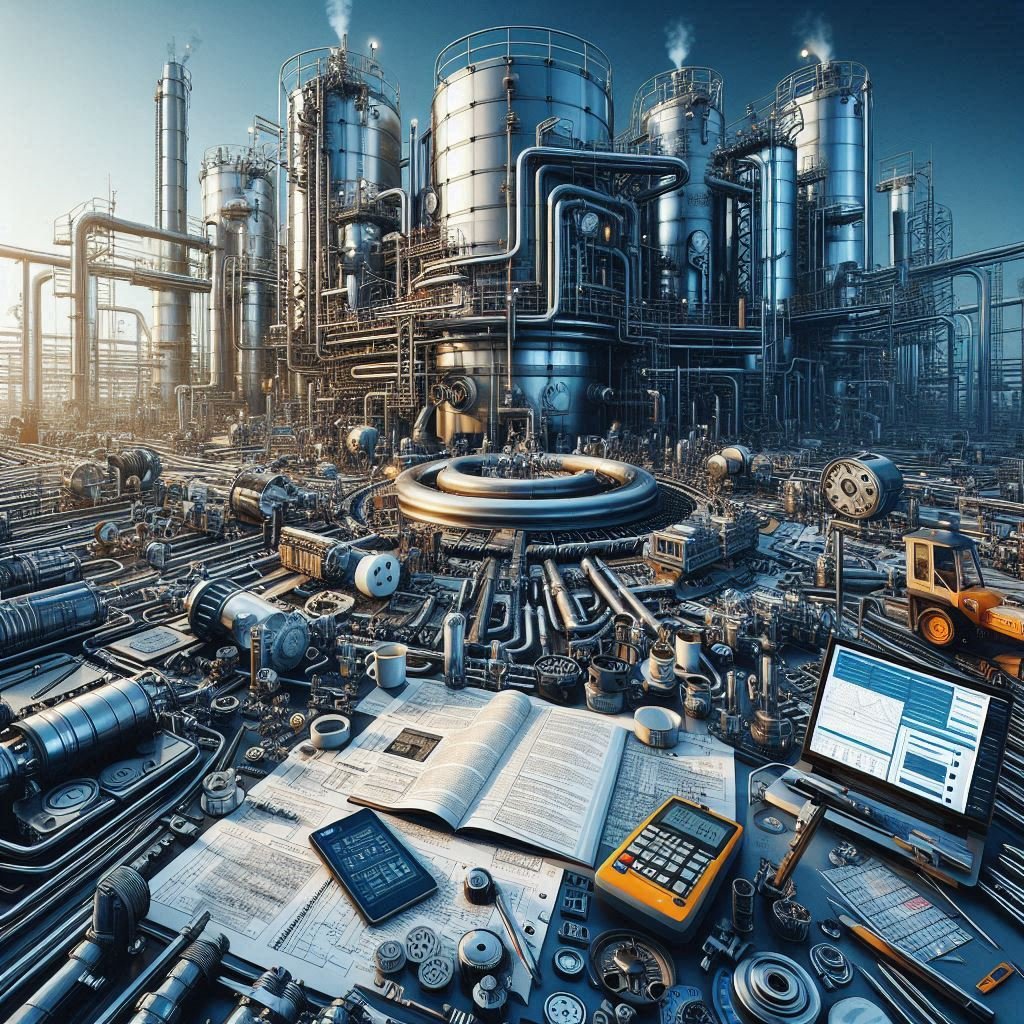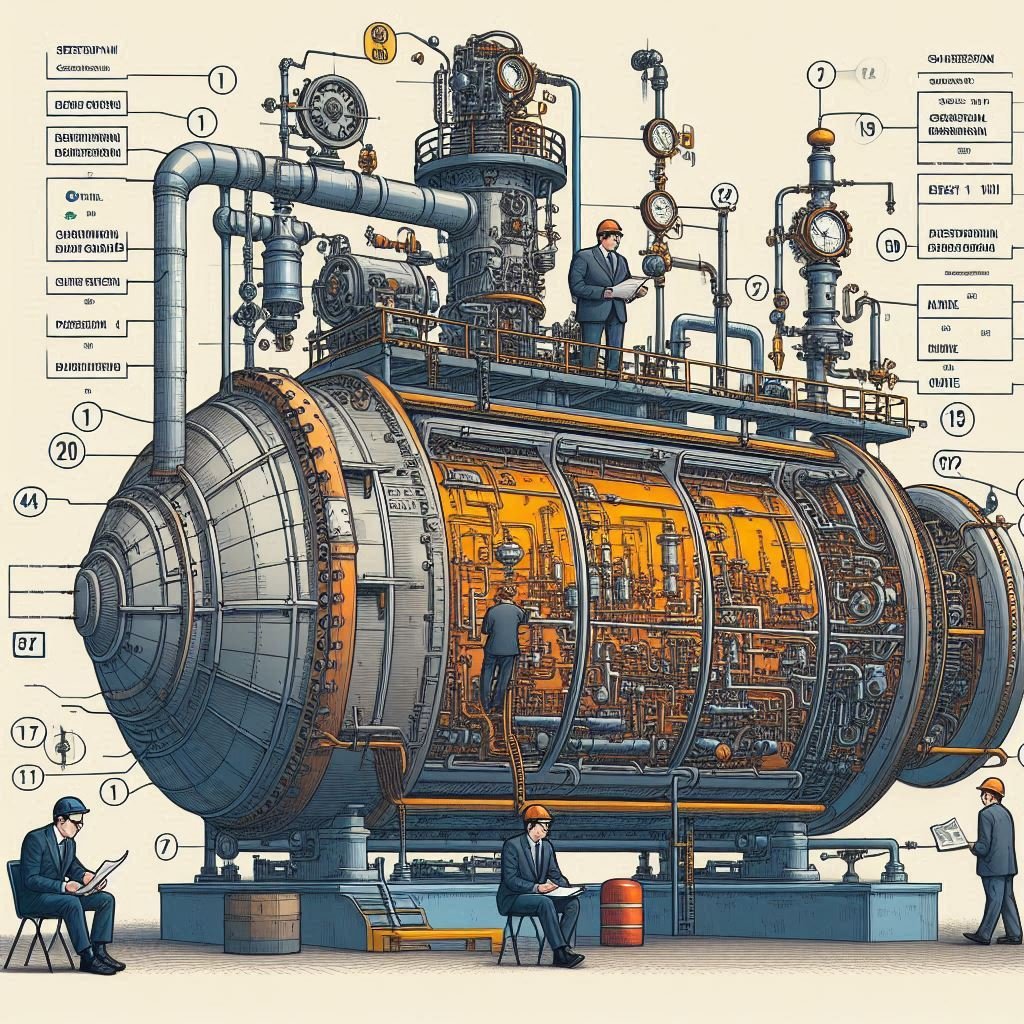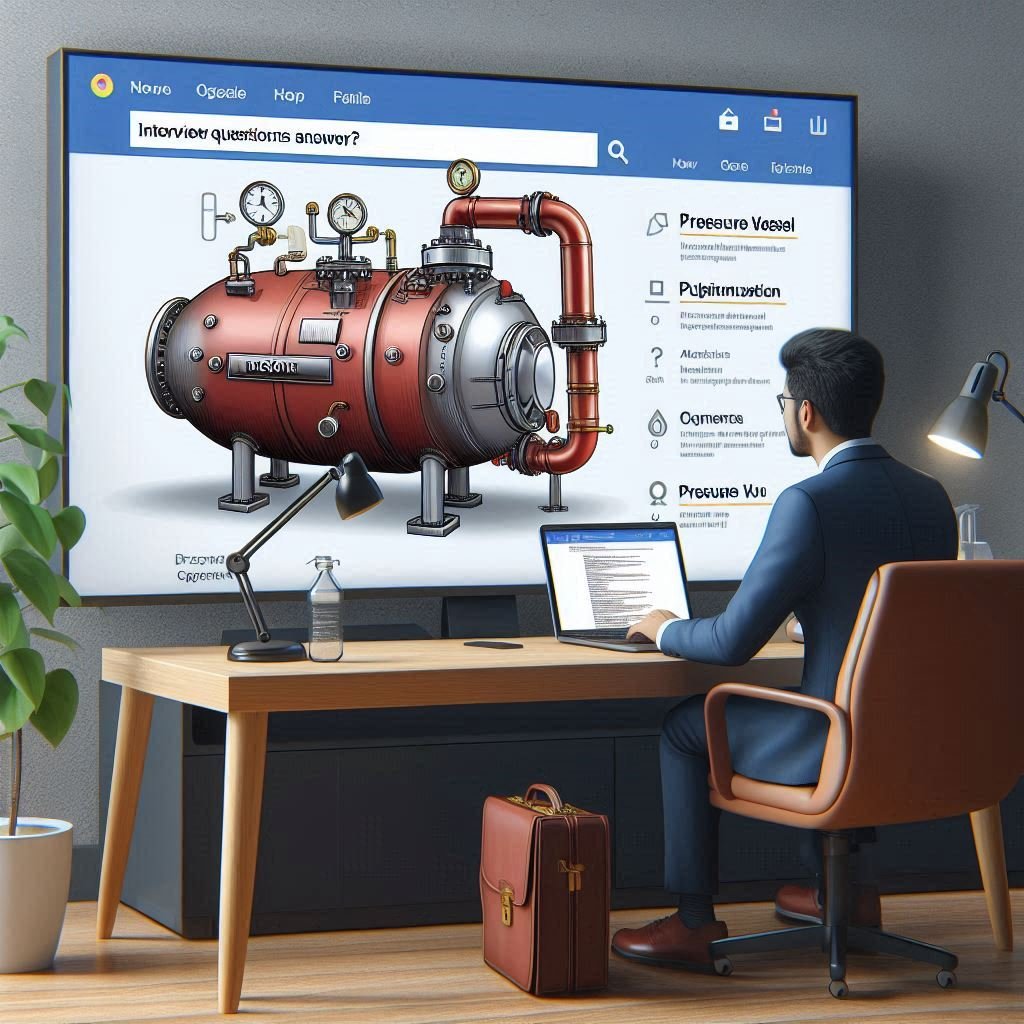Are you preparing for Mechanical Engineering Job Interview:
Are you gearing up for a job interview in the field of mechanical engineering? Whether you’re a fresh graduate just starting your career or an experienced professional looking for new opportunities, our comprehensive guide is designed to help you succeed in every stage of the interview process. Explore a wealth of resources, from fundamental concepts to advanced technical discussions, and prepare with confidence to secure your dream job in mechanical engineering.

- What is Mechanical Engineering?
- Mechanical engineering deals with the design, construction, and maintenance of mechanical systems. It applies principles of physics and materials science to create useful products and technologies.
- What are the core subjects in Mechanical Engineering?
- Core subjects include thermodynamics, fluid mechanics, solid mechanics, heat transfer, materials science, and manufacturing processes. These form the foundation of mechanical engineering knowledge.
- Can you explain the difference between statics and dynamics?
- Statics deals with objects at rest or in equilibrium, while dynamics deals with objects in motion or experiencing acceleration.
- What skills are essential for a career in Mechanical Engineering?
- Essential skills include problem-solving, analytical thinking, creativity, communication, teamwork, and proficiency in technical tools and software.
- What software programs are you proficient in for mechanical design?
- Common software includes AutoCAD, SolidWorks, CATIA, ANSYS, and MATLAB. Highlight your proficiency in using these tools for design, analysis, and simulation. You can also highlight other AI Tools, Microsoft Office programs, Projects Software and so on….But Try to Put forth only that software for which you are well aware or else you can also reveal proficiency of each software with the interviewer.
- What Should you know about the company where you are going to face interview?
- Research the company’s products, projects, and mission statement. Align your skills, experiences, and interests with their goals and demonstrate how you can contribute to their success.
- Can you explain the difference between a bolt and a screw?
- Bolts are used with nuts to fasten two objects together, while screws are inserted into pre-threaded holes and create their own thread.
- What are the various types of bearings used in mechanical systems?
- Common types include ball bearings, roller bearings, plain bearings, and thrust bearings. Each type has specific applications based on load capacity, speed, and operating conditions.
- What safety precautions should be taken when working with heavy machinery?
- Safety precautions include wearing appropriate personal protective equipment (PPE), following equipment operating manuals, securing loose clothing and accessories, and being aware of emergency procedures.
- How do you ensure quality control in manufacturing processes?
- Quality control involves implementing inspection procedures, conducting tests at various stages of production, maintaining equipment calibration, and addressing any deviations from quality standards promptly.
- Explain the concept of mechanical advantage.
- Mechanical advantage is the ratio of output force to input force in a mechanical system. It indicates how much a machine amplifies or reduces the force applied to it.
- What are the key factors to consider in material selection for a mechanical component?
- Factors include mechanical properties (strength, hardness, ductility), corrosion resistance, temperature resistance, cost, availability, and manufacturability.
- What role does CAD (Computer-Aided Design) play in mechanical engineering?
- CAD software allows engineers to create, modify, analyze, and optimize designs digitally before physical prototyping. It speeds up the design process and enables visualization of complex systems.
- What are the different types of loads encountered in mechanical systems?
- Loads include static loads (constant forces), dynamic loads (varying forces), impact loads (sudden forces), and thermal loads (temperature-induced stresses).
- What do you understand by the term ‘mechatronics’?
- Mechatronics is the integration of mechanical engineering, electronics, control engineering, and computer science to design and create intelligent systems and products.
- What do you think are the future trends in Mechanical Engineering?
- Predict future trends such as increased automation, emphasis on sustainable technologies, integration of AI and machine learning, and advancements in nanotechnology and biotechnology.
- What role does Finite Element Analysis (FEA) play in mechanical design?
- FEA is used to simulate and analyze the structural behavior of components under different loading conditions. It helps engineers optimize designs for strength, stiffness, and weight.
- Describe a time when you had to adapt to changes in a project or task.
- Talk about a situation where project requirements changed midway, and you had to adjust your approach, resources, or timeline to accommodate the changes while still achieving objectives.
- How do you ensure that your designs are cost-effective and efficient?
- Consider factors such as material costs, manufacturing processes, assembly methods, maintenance requirements, and lifecycle analysis to optimize designs for cost-effectiveness and efficiency.
- Explain the concept of torque and its significance in mechanical systems.
- Torque is the rotational force applied to an object. It determines the object’s rotational motion and is essential for tasks such as tightening bolts, rotating shafts, and driving gears.
- What are the steps involved in the design process for a mechanical component?
- The design process typically involves problem identification, research and brainstorming, concept generation, detailed design, prototyping, testing, and final implementation.
- How do you prioritize tasks when working on multiple projects simultaneously?
- Prioritize tasks based on deadlines, project importance, resource availability, and dependencies. Use tools such as project management software or to-do lists to stay organized.
- How do you ensure that your designs are environmentally sustainable?
- Consider factors such as material recyclability, energy efficiency, waste reduction, and life cycle assessment in your design process to minimize environmental impact and promote sustainability.
- Explain the difference between stress and strain.
- Stress is the force applied per unit area, causing deformation in a material, while strain is the measure of that deformation relative to the original size of the material.
- What safety protocols should you follow when working with hazardous materials?
- Adhere to safety data sheets (SDS), wear appropriate protective equipment, work in well-ventilated areas, handle chemicals cautiously, and follow proper disposal procedures to minimize risks.
- Explain the concept of mechanical efficiency.
- Mechanical efficiency is the ratio of output power to input power in a mechanical system, indicating how effectively the system converts input energy into useful output energy.
- What are the different types of materials used in mechanical engineering applications?
- Materials include metals (steel, aluminum, titanium), polymers (plastics, composites), ceramics, and advanced materials (carbon fiber, graphene) selected based on properties and application requirements.
- How should you ensure that your designs meet safety standards and regulations?
- Conduct thorough risk assessments, adhere to industry-specific safety standards, incorporate safety features into designs, and collaborate with safety experts or regulatory authorities for compliance.
- What role does reliability engineering play in mechanical design?
- Reliability engineering focuses on ensuring that mechanical systems and components perform consistently and predictably over their intended lifespan, minimizing the risk of failure or malfunction.
- How should you stay organized and manage project timelines effectively?
- Utilize project management tools, set clear goals and milestones, create detailed project plans, allocate resources efficiently, and regularly monitor progress to ensure timely completion of tasks.
- What steps should you take to ensure that your designs are manufacturable?
- Consider manufacturing processes, tolerances, material availability, and cost constraints during the design phase, collaborate with manufacturing experts, and perform design for manufacturability (DFM) analyses.
- How should you handle feedback and constructive criticism in your work?
- Embrace feedback as an opportunity for growth, actively listen to suggestions or critiques, reflect on areas for improvement, and incorporate feedback into your work to enhance performance.
- Explain the concept of fluid mechanics and its applications in mechanical engineering.
- Fluid mechanics studies the behavior of fluids (liquids and gases) and their interactions with solid objects. It has applications in designing pumps, turbines, HVAC systems, and aerodynamics.
- What strategies should you use to optimize designs for performance and efficiency?
- Employ computational simulations, conduct iterative testing and refinement, analyse data to identify areas for improvement, and incorporate feedback from performance metrics to optimize designs continuously.
- How should you maintain a balance between creativity and practicality in your design solutions?
- Combine creative thinking with practical considerations such as cost-effectiveness, manufacturability, and feasibility to develop innovative yet practical design solutions that meet project objectives and requirements.
You can also find an Ultimate Guide for Mechanical Engineers: Interview Preparation.
You can also find some good books on general interview questions for Mechanical Engineers here.
